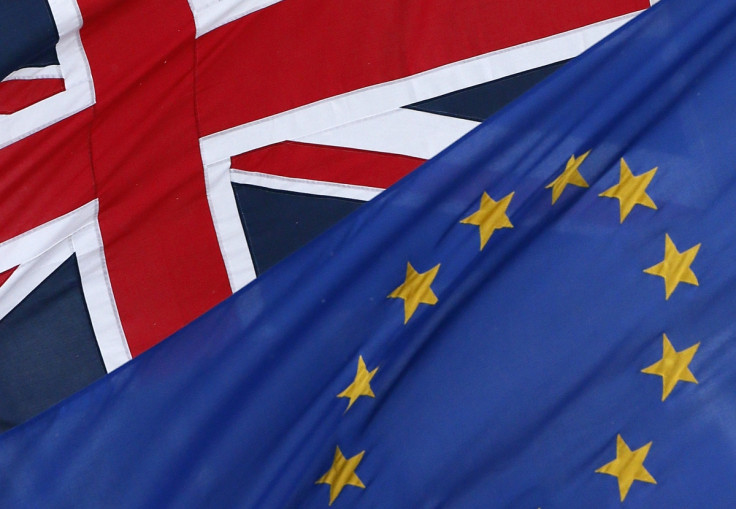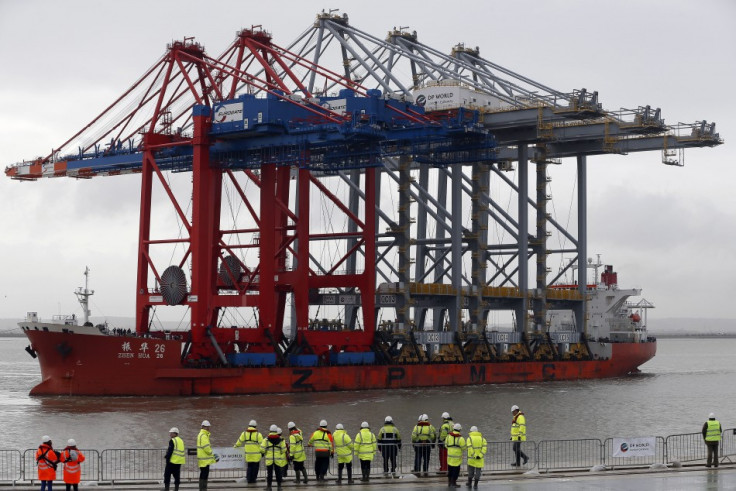TTIP: Why Europe is Still Key to the UK's Export Prospects

The UK government wants exports to double by 2020. After a miserable performance over the past two years, this goal already looks unattainable.
A lot of energy is being expended on encouraging businesses to tap into the rapidly growing emerging markets, but it should be clear that this is not a quick fix.
British exporters would do well not ignore the possibilities of expanding their share of the world's biggest market, right on their doorstep, namely Europe.
The world trade scene has been transformed since the onset of the global financial crisis in 2008. This rudely interrupted a multi-decade acceleration in trade that saw it grow at twice the pace of overall output.
Trade Recovery
Trade plummeted by a fifth in 2009, and although it has since recovered, the trend growth rate is lower than it was.
The crisis disrupted trade financing and challenged business models relying on just-in-time inventory practices and complex global supply chains. More generally, the crisis has raised doubts about the assumption of the inevitability of continued globalisation.
So which markets offer the best growth prospects?
The crisis has left the developed world with a hangover of government debt and banking problems. So despite the question marks over globalisation, few would dispute the idea that the emerging markets will continue to set the pace.
Import growth for these markets could run at an annual rate of over 6% in the next five years, nearly double the rate that is likely in Europe.
Nevertheless, the relatively rapid growth in emerging markets comes at a price. The risks of operating in these markets have been highlighted by events in the Ukraine and the Middle East. A mix of geo-political and economic tensions in a range of emerging markets has raised uncertainties that have dampened investment and trade.
This is why the European Union (EU) cannot be ignored if the UK is to succeed in stimulating the growth in its exports. While the growth in overall imports may be somewhat slower than elsewhere, it continues to account for around half of UK exports.
Moreover, the potential is not just about the growth in the size of the market. It is also about the UK's share of the market. Disappointingly, despite the government's ambitions to the contrary, the UK's share has been declining, compounding the effect of sluggish growth in overall world trade.
Silencing Critics
Euro-sceptics are keen to point out that the EU's share in UK trade is inflated by the transhipment of goods through Dutch and Belgian ports, not all of which end up in the EU. According to some estimates, this so-called "Rotterdam Antwerp effect" more than trebles the recorded exports to the Benelux, making the region a bigger trading partner than even Germany or the US.
While it is true that the EU is a slow growth region, exporters should beware of judging it by its sluggish GDP growth prospects.

Although overall output is set to grow at barely 1.5% annually over the rest of the decade, the outlook for trade is more encouraging, as countries across the Continent try to take a leaf out of Germany's export-led growth book. Trade is set to grow at more than twice the rate of overall output as measured by GDP.
Some of the most radical changes are occurring in the countries on the periphery of the Eurozone that suffered steep declines with onset of the region's sovereign debt crisis. After several years of severe budget austerity, signs of a recovery are emerging.
In addition, with credit-fuelled growth no longer an option, economic reforms and restructuring are restoring these countries' competitiveness. Although the results so far are patchy, the success of Spain and Ireland in stimulating exports is a hopeful sign of things to come.
From the UK's point of view, improvements in the competitiveness of the countries in the Eurozone's periphery are both an opportunity and a threat.
They are an opportunity because internationally connected companies are helping to restore demand in the periphery, and a threat because these companies are becoming stronger competitors to UK exporters.
TTIP
In the near term, there are concerns that the recovery in the Eurozone is once again losing momentum.
However, the European Central Bank under President Mario Draghi is likely to take further action if the recovery falters. In that eventuality, even Germany's hardliners have reluctantly signalled their support for more radical measures such as buying up bonds in an aggressive programme of "quantitative easing".

While it might have the side effect of driving the euro down further against the pound, making it harder for UK exporters to compete, the good news is that the pound is still weaker than it was two years ago.
In the longer term, Europe could also be important to UK export prospects in another sense. The UK also stands to benefit from further trade liberalisation, not least Transatlantic Trade and Investment Partnership (TTIP), which would not only stimulate trade outside the EU, but inside as well, since it would help to lift the current modest growth trend in the EU.
Sadly, growing doubts about the UK's commitment to the EU is one of several political factors that may delay or water down the package.
In any case, it is clear that the UK government cannot afford to ignore Europe if it is to begin to fulfil its ambitious export goals.
Mark Cliffe is the chief economist at ING Group.
© Copyright IBTimes 2025. All rights reserved.



















